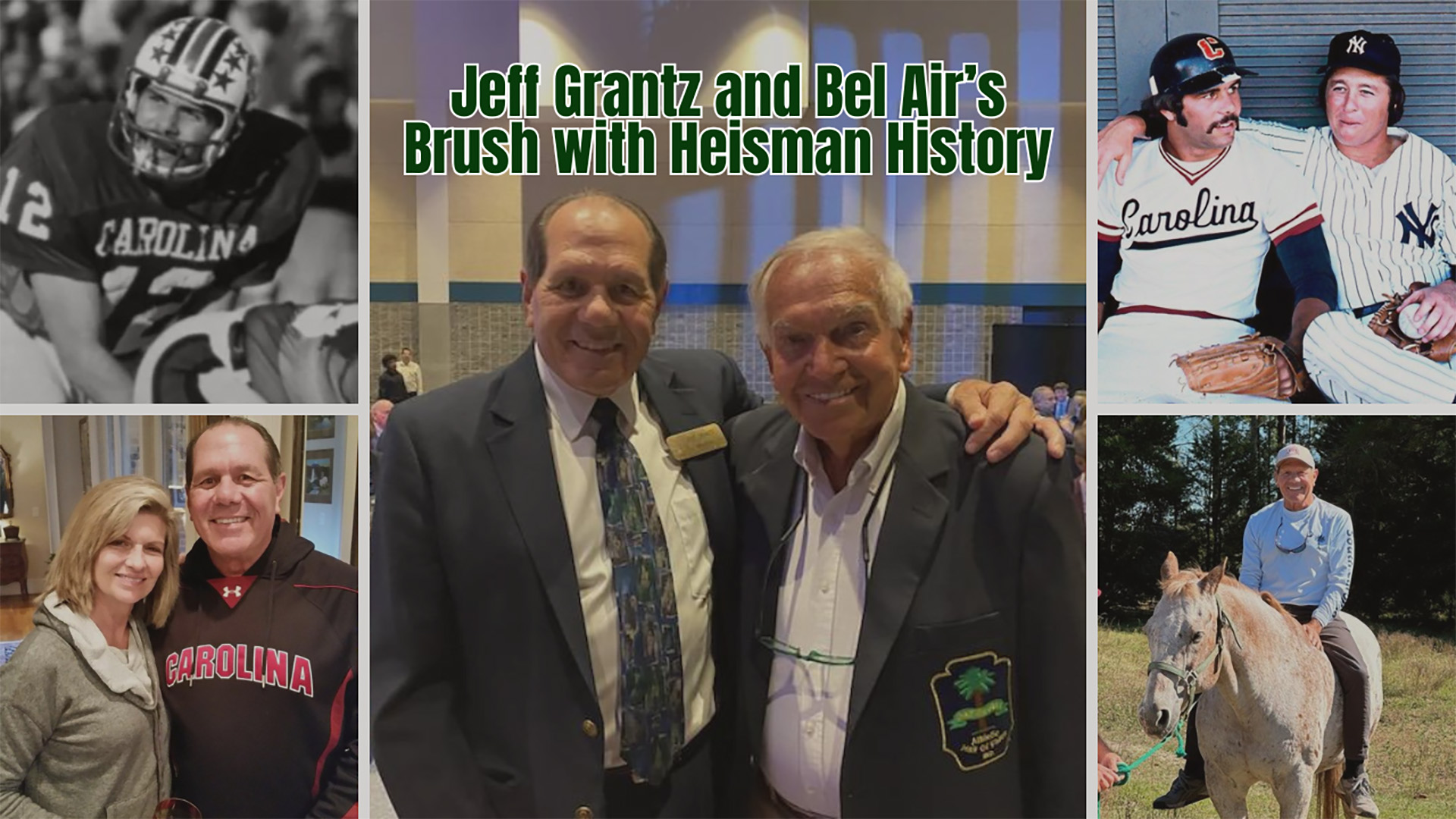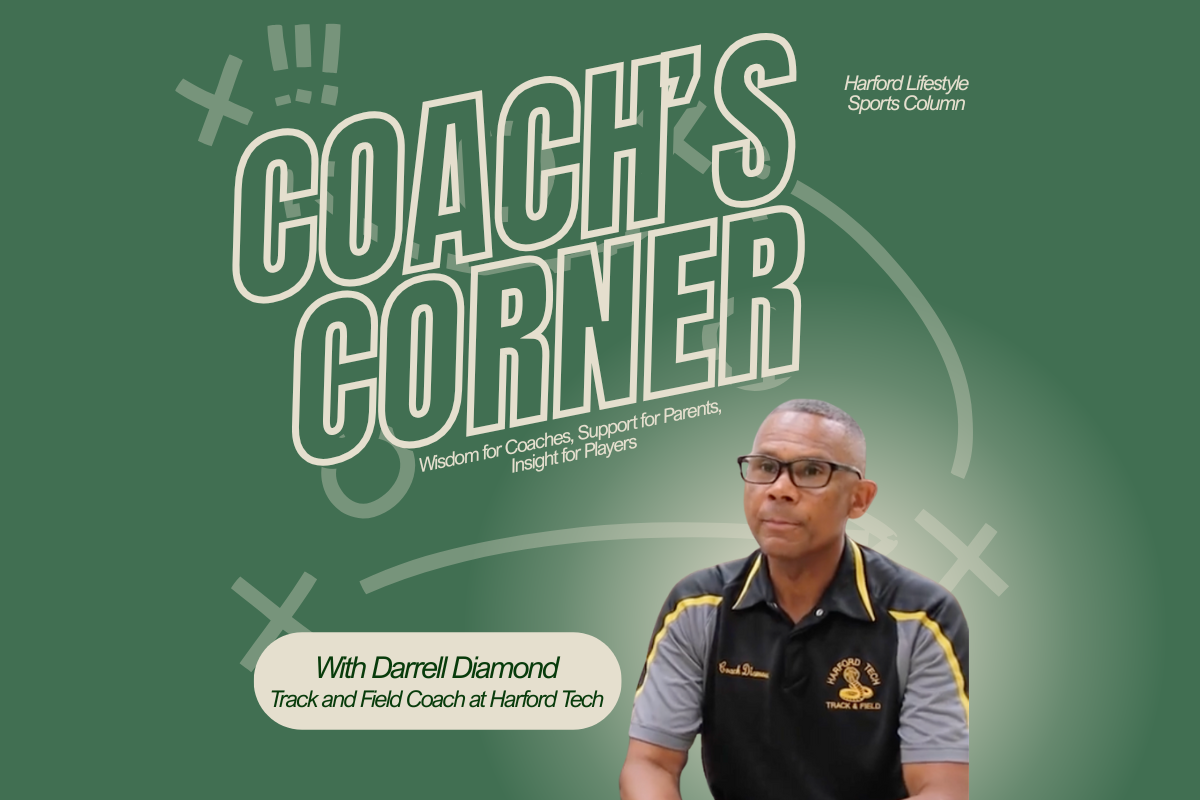Frank Mezzanotte played football and lacrosse at Towson State College, and was a Division 1 Lacrosse All American. After college he took a position as a school teacher and eventually an administrator in the Harford County Public School system, while becoming one of the most beloved football and champion lacrosse coaches of the time. He lives in the South Carolina with his wife Renie.
Harford Lifestyle Sports: Where’d you up? How many brothers and sisters did you have…were you all athletic? Were your parents athletes?
Frank Mezzanotte: I grew up in Jamaica Queens, NY, with my parents and one brother, Vincent. Athletics weren’t available to us in the city when I was growing up. Neither my parents nor Vinny were athletic.
HLS: What sports did you play growing up and when did you discover lacrosse?
FM: Growing up in the city, I played anything with a ball — stickball, punch ball, hand ball, dodge, stoop ball (sandlot or paved courts). We moved to Long Island when I was in high school, where I got involved in organized baseball and football. I was a starter at West Islip HS in baseball, until my junior year, when I decided to change over to lacrosse. My football coach was also the head lacrosse coach, and he convinced me to play lacrosse. It looked like a lot more activity that fit my personality, (better) than baseball had.
HLS: What kind of accolades did you earn while a high school athlete?
FM: I played 2 sports in high school — football and baseball/lacrosse. I was a starter in football at outside linebacker; in lacrosse, I made All-League, All-County, and the All- Long Island team. In baseball, there weren’t any notable accolades.
HLS: Were you recruited out of HS? Did the military draft play a part in your post high school athletic career?
FM: In football, I was recruited by several Division I and II colleges; same in lacrosse. The draft wasn’t a consideration for me — bear in mind, it was 1968 and most of what’s available to athletes today, were not in existence at that time.
HLS: When you attended Towson was it a teacher’s college and in which NCAA divisions did Towson compete? Was Carl Runk your coach for both sports?
FM: Towson State College was a teachers’ college when I attended, from 1969 – 1973; Coach Runk was both my football and lacrosse coach during that time. Towson was a Division II/III school; however, in lacrosse, we played at a Division I level schedule (including Syracuse, Navy, North Carolina, Maryland, Duke, Virginia, Loyola).
HLS: Growing up in the New York area — how’d you end up at Towson and eventually in Harford Co? At which schools did you teach/coach—and what sports?
FM: Being recruited by Univ. of MD and Virginia in lacrosse on a southern trip to visit those schools, my high school coaches strongly recommended Towson. At the time, Towson was starting a football program and had an established lacrosse program, and my high school coaches felt that I could play both sports in college. I attended the University of Dubuque, Iowa to play football right out of high school; after my freshman year, I transferred to Towson. After graduation from Towson, several friends/classmates took jobs in Harford County and recommended that I make an application to HCPS. My first teaching job was at Magnolia Elementary School, and I began coaching at BAHS in football, with Lynn Carr, who was in his first year as head coach of the Bobcats. During my time at BAHS, I was an assistant lacrosse coach at Towson State University for 3 years. After 3 years of coaching at BAHS and Towson, a full-time job opened at Edgewood HS, coaching football (assistant) and lacrosse (head coach).
HLS: You’re held in very high regard as a lacrosse coach, but I remember you as a football coach at BAHS…how long were you at BA? How long at Edgewood, and did you coach Lax only? How many Lacrosse state titles did you have at Edgewood?
FM: I was at BAHS from 1975 – 1978 (I was head coach at EHS for lacrosse and still teaching at Magnolia ES); I was working at EHS from 1978 to 1990. I went to HCC to coach in 1990; I took a position teaching in the Maryland’s Tomorrow Program (for “at risk” students) at (then) Harford Vo-Tech HS — more so that I could be close to HCC to coach lacrosse at HCC — from 1990 – 1993. At EHS, we won three state titles (’83, ’84, and ’89) — we lost one state title to Fallston in 1987.
We won 6 County Championships between 1982 and 1989.
HLS: I remember hearing that you and others used to recruit coaches/and teachers off of college campuses….what was your position within HCPS at that point? Can you elaborate on that ‘job’? Did you look specifically for a wrestling coach for BAHS and a lax coach for HdG?
FM: I coached several players at EHS and at Towson, who would later become coaches on my staff. Probably a highlight of recruiting coaches was Bruce Hart, who was a victim of a serious car accident that left him a quadriplegic but who became a great coach at BAHS. Chuck Muir was a football player who I coached at Bel Air; Jack Arthur was the former head coach at Archbishop Curley who I brought to EHS. At HCC, Bruce Hart & Jack Arthur continued with me, and I brought in Dave Volrath from Fallston HS. As a part of my job as Supervisor of Career & Technology Education, I visited numerous college campuses to recruit teachers in various positions for HCPS Human Resource Office — I was NOT specifically sent to recruit coaches for any athletic teams — candidates who were interested did express their desire to coach whatever sport.
HLS: Circling back to when you first started teaching in Harford Co…..were you surprised there were not Jr High or Middle school sports available thru the schools? PA, NJ, DE, VA etc. all have school sponsored sports—why do you think MD does not? What are your thoughts on the impact that it has on high school sports?
FM: I was surprised and disappointed that middle school/junior high sports were not offered through HCPS. At the time, I would visit Long Island and go to my nephew’s middle school football and lacrosse games and could see a huge benefit in regard to the coaching and establishing strong athletic programs for the high school level. The simple fact that middle school sports don’t exist in Maryland is probably due to budgeting concerns and added responsibility for finding qualified coaches and accessibility of appropriate facilities. It’s my feeling that the school system is more than satisfied with parks & recreation filling the void that exists for middle school sports.
HLS: You and I talked about the 1978 BA v JC football game where BA came through a hole in the fence at 12:55 for a 1:00 game—That would have been a memorable event for me as a player–was it the same for you as a coach?
FM: That day and event was special to all of us — players and coaches — because of the significant rivalry that existed at the time between BAHS and JC. Winning the game could be attributed, in part at least, to the motivation that our entrance gave to our players.
HLS: Stories about you, coaches Jacovitte, Fleming, Carr, and Trainor are still floating around amongst your former players, like legendary story tellers Dave Owen and John Baublis…they remember everything……and your name always comes up.
FM: The thing I’ve learned most about coaching is the importance of having a solid base of mentor coaches to learn from in high school and in college. Surrounding myself with motivated coaches who are always striving to become BETTER coaches is key to achieving a high level of coaching for student athletes. I worked, during many years of coaching football and lacrosse, to attend coaching clinics and hone my skills as a coach — including all facets of what I consider to be “a good coach” who others may call a “great coach.” Working with people (like the ones you mentioned in your question) was a part of my coaching career that I consider key to being a part of “the legends” that still circulate. Being remembered by my former players as a great football or lacrosse coach is priceless to me — staying in touch with them now, in their adult lives, is even more important to me. You don’t always know, in the moment, the impact you might be having on players while they’re on your teams, but certainly, in the decades that have passed as I’ve coached, I have no doubt — and that’s thanks to them. “Getting there” is work — staying there is also work, but it’s different, and with higher expectations for the outcome. There is no singular “most interesting experience” that I can share, but collectively, it’s knowing that so many of my former players have been successful in so many different ways in their lives – the common denominator, in my mind, is that they chose to be involved in sports and play as part of a team. They’re modeling that now for younger people, in sports and in their professions.



